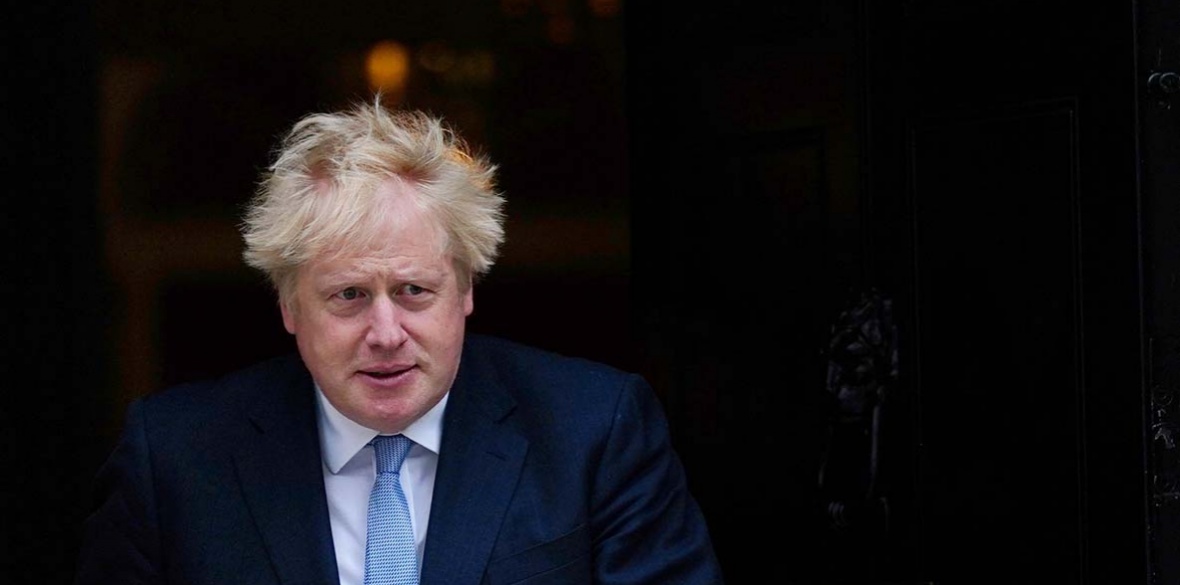This is the last article you can read this month
You can read more article this month
You can read more articles this month
Sorry your limit is up for this month
Reset on:
Please help support the Morning Star by subscribing here
WE are in the middle of an energy crisis which is throwing increasing numbers of people into “heat or eat” decisions. And right in the middle of that is a phoney market solution that fell apart. Because this is Britain, it is also marked by a Tory all-friends-together cronyism.
The government would like to blame the “energy crisis” on one external factor — Vladimir Putin’s invasion of Ukraine.
It is true that Putin’s bloody war has created a side effect of a big pressure on energy prices, alongside the main effects of killing, torture and injustice. But energy inequality is a problem that long predates Putin’s vicious war.
Energy is dominated by big corporations — like the Big Five oil giants — and, in Britain, the Big Six energy suppliers.
They all are happy to squeeze out a big profit at the customer’s expense; the market is functional if you are one of their investors, dysfunctional if you want to use energy, which is all the rest of us.
In Britain there has been long-running anger about the Big Six energy suppliers. Since privatisation they have squeezed too much cash out of customers for an essential product everybody needs.
In 2015 Labour proposed an energy price cap to deal with Big Six profiteering. In 2017 Labour proposed energy nationalisation.
These moves spooked the Tories badly: Theresa May responded by introducing a (weaker) energy cap.
The Conservatives also sought a fake market solution: they got regulators to allow lots of “new entrants” in the energy market, allowing lots of “challenger companies” to compete with the Big Six.
In theory this “competition” should have made customers better-off. But as with many “market” solutions, it was all about gambling and “financialised” solutions rather than productive investment.
The new energy firms were fairly phoney: they didn’t actually generate any energy or own any cables and pipes, they just bought energy on the markets and sold it to consumers. They tried to use all kinds of trading tricks — basically gambling — to cut costs.
When energy prices started rising, due to increased demand as Covid lockdowns and slowdowns ended, these half-arsed companies, squeezed against the energy price cap and without any resources, couldn’t cope and all went bust.
The cost of them going bust will ultimately get passed back on to all of us: there isn’t really a full “market” in energy supply, because we cannot tolerate mass disconnection, so customers of “bust” firms are assigned by the regulator to existing companies — mostly back onto the Big Six who dominate the not-very-free market.
But this means the cost of failure is just passed on to existing companies, which they are resisting.
It adds to the cost of customers future bills. In the case of the largest “new entrant,” Bulb Energy, no existing company could be persuaded to take on the cost of their customers. Instead Bulb was nationalised.
So instead of nationalising the Big Six energy producers, the Tories have ended up nationalising one of their own supposed “challenger” companies, bailing out the useless firm instead of publicly owning the productive ones.
The Office for Budget Responsibility says the government’s bailout of Bulb Energy will cost £2.2 billion up to 2023.
The final cost may be higher. Instead of keeping a close eye on Bulb before it went bust in November 2021, the government was hobnobbing with Bulb, famously with an extended visit by Boris Johnson to Bulb’s offices in July 2021.
Close examination suggests Johnson spent time recording extended Bulb-promoting videos and bumbling about the firm’s HQ in a Bulb-branded facemask a few months before the company collapsed thanks to lobbying involving close Tory circles around the Prime Minister.
David Cameron’s former strategy director, Ameetpal Gill, created a lobbying company called Hanbury Strategy.
In September 2017 the advisory committee on business appointments, the toothless watchdog policing the “revolving door” between government and business, approved Gill and Hanbury taking Bulb as a client.
Hanbury gives Bulb “strategic communications advice” to help it with “increasing Bulb’s public profile.”
Records show Bulb remains a Hanbury client. Hanbury remains close to the Tories — it did £700,000 of work for the Conservatives in the 2019 election.
In June 2021 Bulb launched an “initiative” called the “tech zero taskforce,” supposedly committing itself and some tech firms to reducing carbon emissions.
This was closely targeted at Johnson’s government, suggesting Hanbury’s advice was likely involved. This Bulb-led “taskforce” was run through Tech Nation, a government-backed tech business promoter.
Tech Nation relies largely on millions in government funding and in 2020 it hired the PM’s brother Jo Johnson as a director.
By focusing its “green initiative” on Tech Nation, Bulb linked itself closely to the government.
Culture Secretary Oliver Dowden personally launched Bulb’s “tech zero taskforce” in June 2021, delivering a speech singling out Bulb for praise, claiming it had “transformed energy.”
So before Boris Johnson’s high-profile visit to Bulb, the firm had launched a publicity seeking “green” scheme that involved his brother Jo which was praised by a Tory Cabinet minister.
Bulb did not in fact generate or transform energy, it just traded in it in an increasingly dysfunctional market. But instead of the government closely watching Bulb in the run-up to its collapse, it was praising the firm in what seems to be the result of contacts between a close circle of favoured lobbyists and insiders, including the Prime Minister’s brother, after which we are left with a £2 billion-plus bill.
The energy crisis is going to get a lot worse and it’s going to lead to more state intervention.
But with our corporate-friendly, crony-ish government, that intervention may well end up helping favoured firms more than it helps people in real need.











